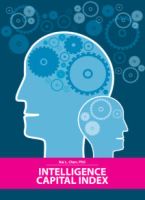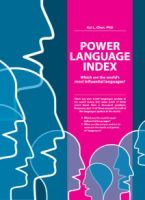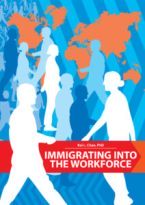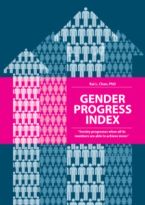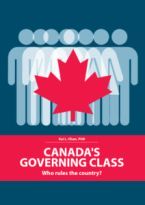
Kai Chan Distinguished Fellow, INSEAD Innovation and Policy Initiative The Fourth Industrial Revolution, with artificial intelligence (AI) as one of its principal drivers, promises big changes. AI automation is expected to lead to, among other things, large disruptions in the labour market. A 2013 Oxford study estimated that almost half of employment in the US is at risk of computerization. Similarly, a 2017 McKinsey report suggests that by 2030 one-third of work activities could be displaced by automation. Some countries, industries and professions are more susceptible to these risks, which means these changes will lead to redistributive effects. That is, AI is expected to lead to increased economic inequality both across and within countries. But this is not the first time that a technological revolution has threatened jobs and to upend society. The First Industrial Revolution generated similar concerns and was the catalyst of the "Great Divergence" in cross-country incomes; nations that industrialized became rich, while those that did not were left behind. The gap has grown with each successive jump in technological progress. Although AI automation will bring about significant productivity gains for society as a whole, it will nevertheless spawn winners and losers. Economists usually speak of such…

 Kai Chan Distinguished Fellow, INSEAD Innovation and Policy Initiative The Fourth Industrial Revolution, with artificial intelligence (AI) as one of its principal drivers, promises big changes. AI automation is expected to lead to, among other things, large disruptions in the labour market. A 2013 Oxford study estimated that almost half of employment in the US is at risk of computerization. Similarly, a 2017 McKinsey report suggests that by 2030 one-third of work activities could be displaced by automation. Some countries, industries and professions are more susceptible to these risks, which means these changes will lead to redistributive effects. That is, AI is expected to lead to increased economic inequality both across and within countries. But this is not the first time that a technological revolution has threatened jobs and to upend society. The First Industrial Revolution generated similar concerns and was the catalyst of the "Great Divergence" in cross-country incomes; nations that industrialized became rich, while those that did not were left behind. The gap has grown with each successive jump in technological progress. Although AI automation will bring about significant productivity gains for society as a whole, it will nevertheless spawn winners and losers. Economists usually speak of such…
Kai Chan Distinguished Fellow, INSEAD Innovation and Policy Initiative The Fourth Industrial Revolution, with artificial intelligence (AI) as one of its principal drivers, promises big changes. AI automation is expected to lead to, among other things, large disruptions in the labour market. A 2013 Oxford study estimated that almost half of employment in the US is at risk of computerization. Similarly, a 2017 McKinsey report suggests that by 2030 one-third of work activities could be displaced by automation. Some countries, industries and professions are more susceptible to these risks, which means these changes will lead to redistributive effects. That is, AI is expected to lead to increased economic inequality both across and within countries. But this is not the first time that a technological revolution has threatened jobs and to upend society. The First Industrial Revolution generated similar concerns and was the catalyst of the "Great Divergence" in cross-country incomes; nations that industrialized became rich, while those that did not were left behind. The gap has grown with each successive jump in technological progress. Although AI automation will bring about significant productivity gains for society as a whole, it will nevertheless spawn winners and losers. Economists usually speak of such… 

